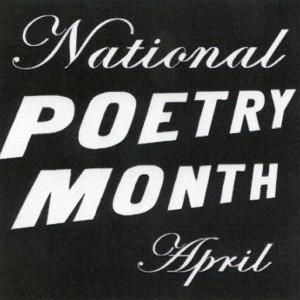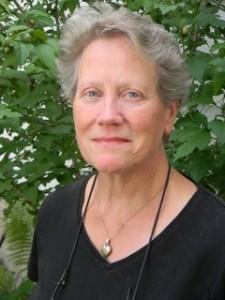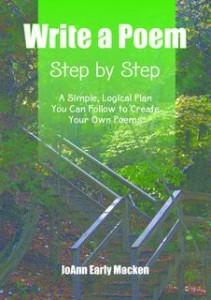#WritersRead: Five Favorite Poetry Collections by JoAnn Early Macken
A few weeks ago, I blogged about How to Use Poetry to Transform Your Writing. But author and poet JoAnn Early Macken says it so much better in today’s post about her favorite poetry collections. Read the post, then go out and buy some of these books and read, read, read. Then you’ll see: your writing will explode with awesomeness!
By the way, JoAnn has written an amazing book on writing poetry, Write A Poem Step by Step. You can enter below to win a copy. Happy reading! Rochelle, the Write Now! Coach
 #WritersRead: Five Favorite Poetry Collections by JoAnn Early Macken
#WritersRead: Five Favorite Poetry Collections by JoAnn Early Macken
What makes a poetry collection—or any book—a favorite? To qualify, I think, a book must hang around long enough to sink in. It must be one I’ve read several times, so my favorite poetry collections are not new, although plenty of newer ones have the potential to become favorites over time.
As I read individual poems, I pay attention to imagery, word choice, rhythm, rhyme, structure, theme, emotional impact, and so on. When I look at the big picture of an entire collection, I notice cumulative effects: one poem builds on another, intensifying its impact, creating a stronger whole.
What makes any book click with a reader is that it makes a connection. A favorite book can create a sense of recognition: This is what we have in common. It’s obvious from the content of Little Dog Poems that Kristine O’Connell George is a dog person. The little poems about a little dog (accompanied by adorable illustrations by June Otani) create that “Yes!” again and again. I use them in writing classes to illustrate brevity—each poem makes a clear, distinct point in only a few words. The poems also show enormous heart and an understanding of the relationship between a pet and its person. Here’s one example:
Leaving
Little Dog hates keys
and purses
and suitcases
and backpacks—
all the things that mean
goodbye.
A favorite book might bring back fond memories. I was pleasantly surprised when I noticed the subtitle of Mary Ann Hoberman’s classic The Llama Who Had No Pajama: 100 Favorite Poems. Well, of course! The jacket flap says the poems, “culled from more than forty years” (Wow!) “convey the experiences of childhood with a timeless freshness.” They certainly do! I’m continually impressed with Hoberman’s flawless rhythm and rhyme. Reading these poems is a joy! I remember when I bought this book. I brought it home and read all 100 poems to our two young sons in one sitting—and they sat still and listened. I remember snuggling on the couch. And I remember waking up the next morning thinking in verse. Any book that can do that is a companion for life. You can watch April Halprin Wayland, Jill Esbaum, and me reading “Counting-Out Rhyme” from this collection on YouTube.
A poetry collection can become a favorite simply because it’s fun to read. The poems in Words with Wrinkled Knees: Animal Poems by Barbara Juster Esbensen take a clever approach to animals by focusing on their names. The collection takes its title from the first poem, ELEPHANT. Here is an excerpt:
. . . This is a lumbering
gray word the ears of it
are huge and flap like loose
wings a word with
wrinkled knees and toes
like boxing gloves
Esbensen was a master of wordplay. I used her encouraging A Celebration of Bees: Helping Children to Write Poetry with our son’s third grade class and won the Barbara Juster Esbensen 2000 Poetry Teaching Award for the project. With the prize, I bought a copy of Words with Wrinkled Knees for each student. Some student poems found their way into Write a Poem Step by Step. I hope the students are still enjoying their books!
A good poetry collection, like a good poem, evokes an emotional response. It makes readers recognize themselves; it resonates. What makes it memorable is its ability to do that again and again. When I reread a favorite poetry collection, I find something new each time, partly because I’ve changed since I read it last.
The Introduction to the young adult anthology What Have You Lost? (Poems selected by Naomi Shihab Nye) says, “Maybe the reason we talk about our petty losses with such energy is that there are so many inevitable larger ones that can never be redeemed or reclaimed.” The poems in this collection are not about petty losses; they are eye opening, poignant, intimate, full of longing, sometimes heart wrenching. Personal details give them universal meaning and appeal. Every time I read this book, I add more sticky notes to mark more favorite poems.
A favorite book might commemorate a significant event that the reader shared and remembers. This Place I Know: Poems of Comfort (Poems selected by Georgia Heard) was compiled as a response to the horrific events of September 11, 2001. A Note from the Author explains, “I tried to choose poems that touch upon our feelings of fear and loss, remind us that we are not alone in despair, and assure us that dreams can be born even from tragedy.” The poems are touching, hopeful, relevant, positive, moving, and yes, comforting. Share this collection with people who are suffering. Read it to console yourself in difficult times. It helps.
So many wonderful poetry collections wait for you to explore. I’ve listed more of my favorites on my web site. Lists of new poetry collections appear in “April is National Poetry Month” from the April 2014 issue of Notes from the Horn Book and the Booksource Banter April 2014 newsletter. Check out these lists and find the titles that will become your favorites!
 About the author. JoAnn Early Macken is the author of Write a Poem Step by Step (Earlybird Press), 5 picture books, and more than 100 nonfiction books for young readers. Her poems appear in numerous magazines and anthologies. JoAnn earned her M.F.A. in Writing for Children and Young Adults at Vermont College of Fine Arts. She has taught writing at four Wisconsin colleges, and she speaks about poetry and writing to students, teachers, and adult writers at schools, libraries, and conferences. She is celebrating National Poetry Month on her web site at www.joannmacken.com and at TeachingAuthors.com.
About the author. JoAnn Early Macken is the author of Write a Poem Step by Step (Earlybird Press), 5 picture books, and more than 100 nonfiction books for young readers. Her poems appear in numerous magazines and anthologies. JoAnn earned her M.F.A. in Writing for Children and Young Adults at Vermont College of Fine Arts. She has taught writing at four Wisconsin colleges, and she speaks about poetry and writing to students, teachers, and adult writers at schools, libraries, and conferences. She is celebrating National Poetry Month on her web site at www.joannmacken.com and at TeachingAuthors.com.










I won’t enter the contest for the book, since I already have it (and have others I’ve given away to people, who also love it!). It’s always wonderful to read JoAnn’s thoughts, and reading/working with this book is like having a conversation with a master poet/teacher/workshop leader. Anyone looking for writing/poetry advice need go no further than JoAnn.
Agreed! Thanks for stopping by, Sandy!
Thank you, Sandy!
The book sounds wonderful. I would love to win it!
I’d love to win a copy of this book to help me to write better poetry for kids.
I buy too many books on writing… I’d love to win one!
Thank you, Leigh!
Here are two more lists of new poetry titles to enjoy:
from School Library Journal: http://www.slj.com/2014/04/collection-development/introducing-students-to-nctes-notable-poetry-titles/#_
from the International Reading Association: http://www.reading.org/reading-today/literature/post/books/2014/04/21/book-reviews-for-national-poetry-month#.U1ZuElVdWa-
Happy reading!
JoAnn
Yeah! Thank you for the additional lists!
thanks JoAnn! Can’t wait to get yr book. The older I get the more I feel the power of poetry! As for my fave collection? Mary Oliver original Selected Poems.
My favorite poetry collection is a lovely book called TALKING LIKE THE RAIN.
If I don’t win this, I just have to remember to buy it. Looks like a terrific resource! I could really use it.
Elizabeth, Leanne, and Stephenie, thanks and good luck! Another giveaway is going on on my blog at http://www.joannmacken.com/blog.htm?post=955103
Susa, yes, Mary Oliver’s poems are always thought-provoking and moving. Pat, Talking Like the Rain is another of my favorites. I could have made a much longer list, but I’d still be writing!
Mary Oliver also wrote two books about writing poetry that I recommend wholeheartedly:
A Poetry Handbook: A Prose Guide to Understanding and Writing Poetry
and
Rules for the Dance: A Handbook for Writing and Reading Metrical Verse.
I use both in poetry writing classes I teach for adults.